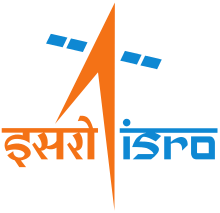Indian National Committee for Space Research
The Indian National Committee for Space Research (INCOSPAR) was set up in 1962 by the Indian Government [1] under Dr. Vikram Sarabhai to formulate the Indian Space Programme. At the time, the committee was part of the Tata Institute of Fundamental Research, led by M. G. K. Menon.[2] The committee took over the responsibilities of the Department of Atomic Energy in space science and research. The then director of the DAE, Dr. Homi Bhabha, was instrumental in creation of the committee.[2]
INCOSPAR took the decision to set up Thumba Equatorial Rocket Launching Station (TERLS) at Thumba on the southern tip of India. Dr. A. P. J. Abdul Kalam (who later became the President of India) was amongst the initial team of rocket engineer forming the INCOSPAR.
INCOSPAR eventually grew into ISRO in 1969.[1]
References
- 1 2 Pushpa M. Bhargava; Chandana Chakrabarti (2003). The Saga of Indian Science Since Independence: In a Nutshell. Universities Press. pp. 39–. ISBN 978-81-7371-435-1.
- 1 2 History of the Indian Space Programme
